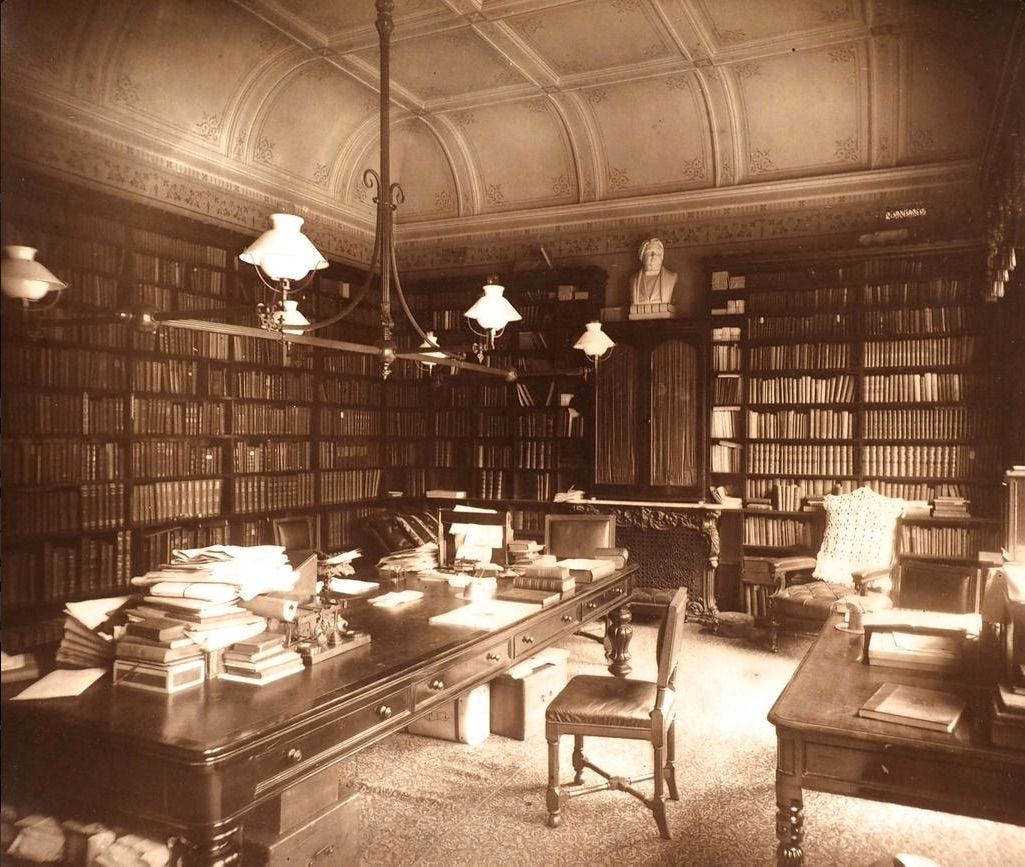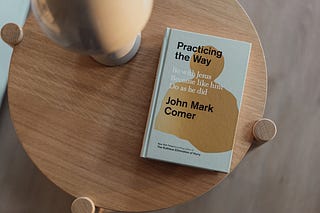
On January 31, 1892, Charles Spurgeon died at the age of 57 in Menton, France. A humble giant went to be with his Lord, and left a wake of converts, churches planted, orphans cared for, pastors trained, sermons, books, and gospel-insights for us to enjoy.
One of the many things I've learned from Spurgeon is the value of reading. Reading for your soul, reading to improve your preaching, reading for wisdom, and reading for enjoying God. And in our literate culture, reading is crucial for our spirituality.
Here is a snippet from Spurgeon's sermon on Paul telling Timothy to bring him books, "The cloke that I left at Troas with Carpus, when thou comest, bring with thee, and the books, but especially the parchments." (2 Tim 4:13 KJV). Paul wanted to read—so should we.
"He is inspired, and yet he wants books! He has been preaching at least for thirty years, and yet he wants books! He had seen the Lord, and yet he wants books! He had had a wider experience than most men, and yet he wants books! He had been caught up into the third heaven, and had heard things which it was unlawful for a man to utter, yet he wants books! He had written the major part of the New Testament, and yet he wants books! The apostle says to Timothy and so he says to every preacher, 'Give thyself unto reading.'
The man who never reads will never be read; he who never quotes will never be quoted. He who will not use the thoughts of other men’s brains proves that he has no brains of his own.
Brethren, what is true of ministers is true of all our people. You need to read. Renounce as much as you will all light literature, but study as much as possible sound theological works, especially the Puritanic writers, and expositions of the Bible. We are quite persuaded that the very best way for you to be spending your leisure, is to be either reading or praying. You may get much instruction from books which afterwards you may use as a true weapon in your Lord and Master’s service. Paul cries, 'Bring the books'—join in the cry.
Paul herein is a picture of industry (or, productivity). He is in prison. He cannot preach. What will he do? As he cannot preach, he will read. As we read of the fishermen of old and their boats. The fishermen were gone out of them. What were they doing? Mending their nets. So if providence has laid you upon a sick bed, and you cannot teach your class—if you cannot be working for God in public, mend your nets by reading. If one occupation is taken from you, take another, and let the books of the apostle read you a lesson of industry.
He says, 'Especially the parchments.' I think the books were Latin and Greek works, but that the parchments were Oriental; and possibly they were the parchments of Holy Scripture; or as likely, they were his own parchments, on which were written the originals of his letters which stand in our Bible as the Epistles to the Ephesians, the Philippians, the Colossians, and so on.
Now, it must be 'Especially the parchments' with all our reading. Let it be especially the Bible.
Do you attach no weight to this advice? This advice is more needed in England now than almost at any other time, for the number of persons who read the Bible, I believe, is becoming smaller every day. Persons read the views of their denominations as set forth in the periodicals; they read the views of their leader as set forth in his sermons or his works, but the Book, the good old Book, the divine fountain-head from which all revelation wells up—this is too often left. You may go to human puddles, until you forsake the clear crystal stream which flows from the throne of God. Read the books, by all manner of means, but especially the parchments. Search human literature, if you will, but especially stand fast by that Book which is infallible, the revelation of our Lord and Saviour Jesus Christ."
C. H. Spurgeon, “Paul—His Cloak and His Books,” in The Metropolitan Tabernacle Pulpit Sermons, vol. 9 (London: Passmore & Alabaster, 1863), 668–669.
Here are some book recommendations to get you started:
Reading for Spiritual Theology
Book Reviews | Tim Challies
Book Reviews
Books - Spiritual Theology - J.A. Medders







